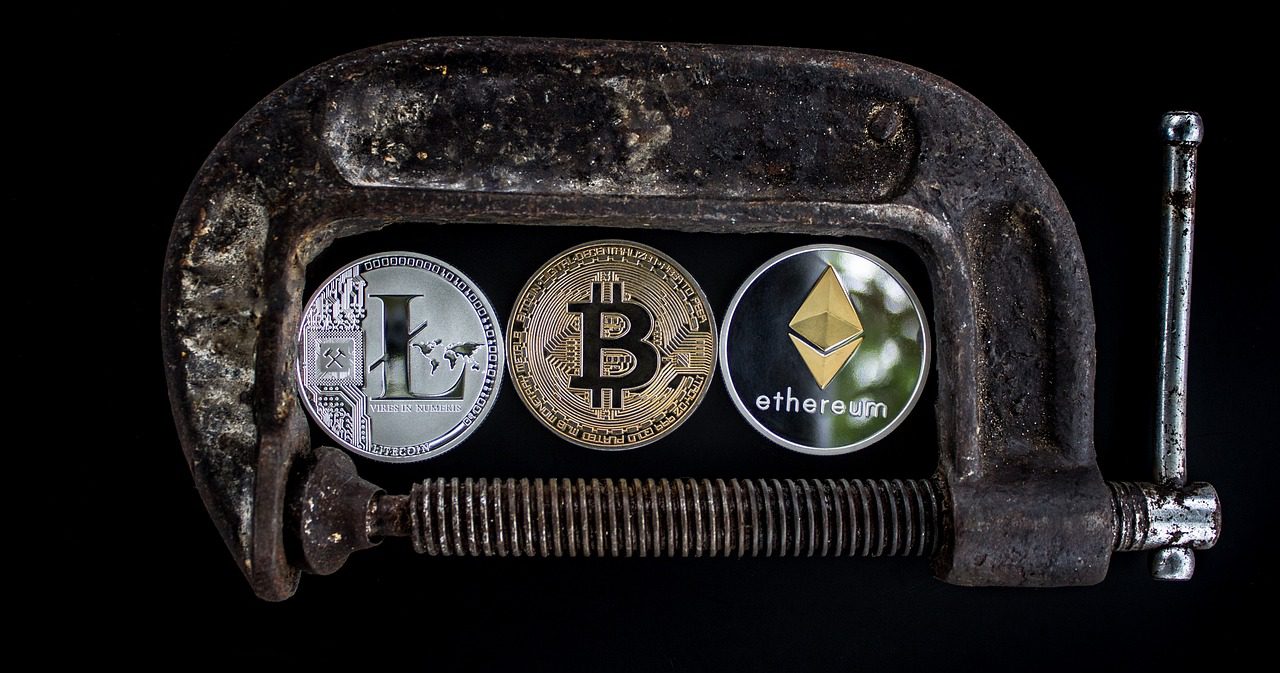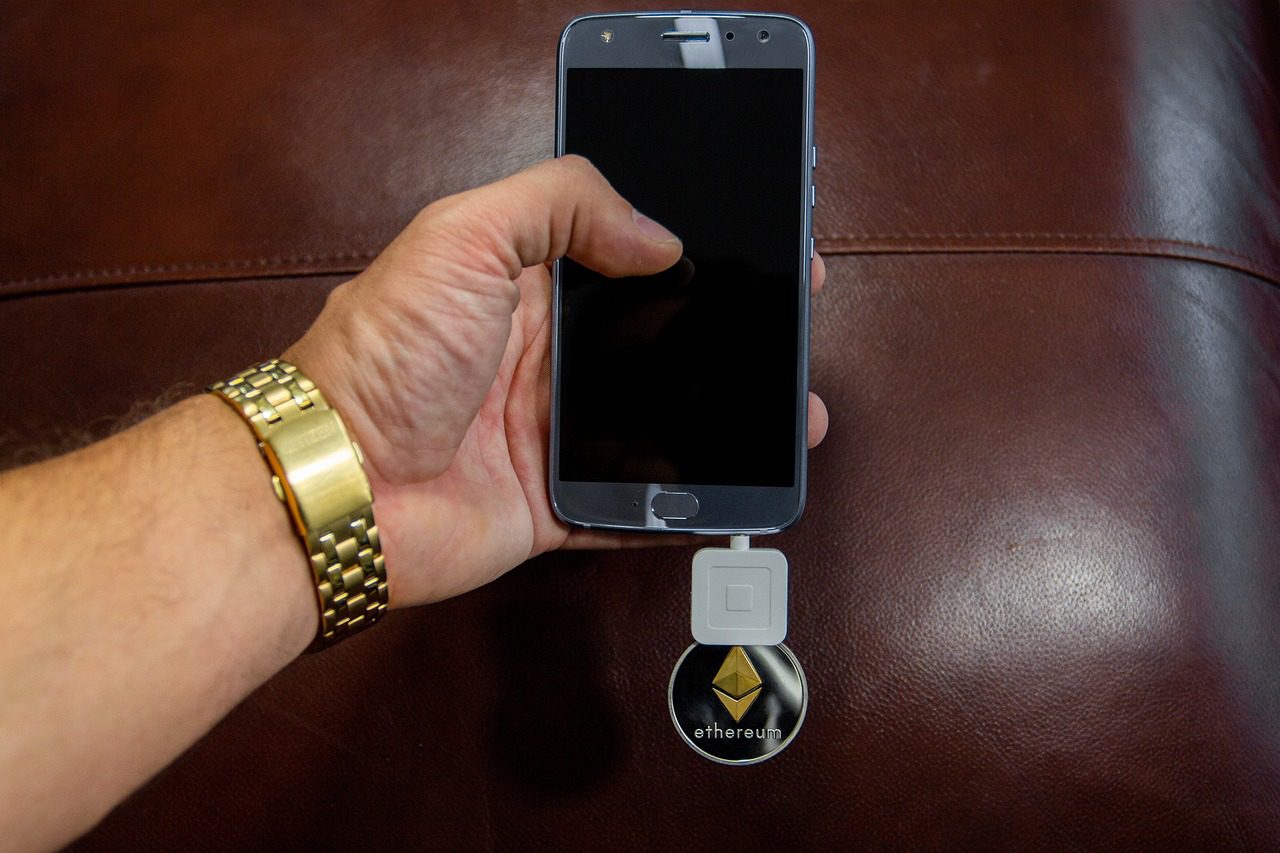The slightest misstep in managing your flashy cryptocurrency investments can lead to a daunting disaster, making it imperative to strengthen the fortress around your digital wealth. The article, “Cryptocurrency Security: Best Practices For Safeguarding Your Investments In 2024” offers substantial, easy-to-follow measures aimed at ensuring every penny of your cryptocurrency remains untampered and within your grasp. In a rapidly ever-evolving digital era, the knicks and knacks of maintaining high-level security for your investments don’t have to be rocket science, and this article will be your friendly guide to sailing smoothly through the crypto world without losing sleep over potential security breaches.
Introduction to Cryptocurrency Security
Cryptocurrency, the digital or virtual form of currency that utilizes cryptography for security, has become vastly mainstream. The rise in popularity of these digital currencies like Bitcoin, Ethereum, and numerous others, has ushered in a new era of financial transactions.
What is cryptocurrency?
Cryptocurrency is a type of digital or virtual currency. It serves as a decentralized medium of exchange, where individual coin ownership records are stored in a ledger, in a form of a computerized database. Most importantly, it makes use of strong cryptography to secure transaction records, to control the creation of additional coins, and to verify the transfer of coin ownership.
Why is cryptocurrency security important?
Security is absolutely crucial in the realm of cryptocurrency. As digital currencies are becoming an increasingly attractive target for hackers, it’s imperative that you take necessary precautions to secure your investments. Losing your cryptocurrency assets to security breaches implies an enormous financial loss, not to mention the subsequent recovery process can be near impossible due to the nature of these currencies.
Overview of cryptocurrency security practices
Cryptocurrency security includes practices and methods used to safeguard digital cryptocurrencies from potential risks. Some of these practices involve choosing a secure wallet, protecting your private keys, implementing two-factor authentication, ensuring your devices and networks are secure, educating yourself about phishing attacks, securing exchanges, and implementing cold storage.
Understanding the Risks
Awareness of the risks involved with cryptocurrency is integral to preparing and fortifying your security strategy.
Types of cryptocurrency security risks
There are various types of risks associated with cryptocurrency. These could be related to private key losses, software wallet vulnerabilities, network attacks, fraudulent exchanges, or famously, phishing scams.
Recent cryptocurrency security breaches and thefts
Recent years have witnessed several high-profile security breaches. The consequences of such breaches are always devastating, often involving the loss of millions of dollars. Cryptocurrency exchanges are among the most targeted, underscored by incidents like the infamous Mt. Gox hack or the more recent Coincheck heist.
The evolving nature of cryptocurrency risks
The risks in the world of cryptocurrency are continually evolving. Malicious actors are always seeking out new vulnerabilities to exploit, contributing to an ever-shifting landscape of security threats. This highlights the importance of staying abreast with the latest developments and adopting the most evolutionarily-advanced security practices.

Choosing a Secure Wallet
One of your first lines of defense in securing your assets is choosing the right wallet.
Types of cryptocurrency wallets
There are several types of wallets you can choose from – hardware wallets, software wallets, and web-based wallets. Each serves the same core function but differs in terms of security and usability.
Hardware wallets: The most secure option
Hardware wallets are physical devices designed to secure cryptocurrencies. They are widely considered the safest way to store your cryptocurrency offline, away from internet vulnerabilities.
Software wallets: Balancing convenience and security
Software wallets, which are downloadable applications, offer a decent balance between convenience and security. While they don’t offer the same level of security as hardware wallets, their enhanced usability makes them a popular choice among users.
Web-based wallets: Risks and precautions
Web-based wallets, while the most convenient, are also the most susceptible to online threats. If you opt to use a web-based wallet, it’s important to research its security measures and maintain good cybersecurity practices.
Protecting Your Private Keys
Your private keys are essentially the password to your cryptocurrencies. Guarding them is paramount.
The role of private keys in cryptocurrency security
Private keys play a critical role in cryptocurrency security. They provide access to your cryptocurrency, serving as a type of digital signature in the encryption/decryption process. Any compromise of your private keys generally means losing access to your assets.
Generating and storing private keys securely
Your private keys should be randomly generated and stored securely. There are numerous secure key-generation tools available, and it is vital that you store your private keys in a safe place, such as an encrypted file or a hardware wallet.
Multisig wallets: Enhanced security through multiple keys
Multisig, or ‘multi-signature’, wallets add an extra layer of security by requiring more than one private key to authorize a transaction. This dispersion of authority not only drastically reduces the possibility of single point of failure, but also provides protection against the loss of a single key.

Using Two-Factor Authentication
Implementing two-factor authentication (2FA) is another effective security measure for securing your cryptocurrency.
What is two-factor authentication (2FA)?
2FA is a security method that requires two different ways of proving your identity. Typically, this process involves something you know (like a password) and something you have (like your phone or a hardware token).
Different methods of implementing 2FA
There are various methods of implementing 2FA, like text message codes, email codes, or application-based 2FA like Google Authenticator. Hardware-based 2FA devices also offer an even higher level of security.
Best practices for setting up 2FA on your cryptocurrency accounts
When setting up 2FA on your accounts, it’s crucial to choose a method that is not easily hackable. Avoid methods like SMS which are less secure. Be sure to also have a backup plan in case you lose access to your primary 2FA device.
Securing Your Devices and Networks
Securing the devices you use for managing cryptocurrency and the networks on which you conduct transactions is another crucial aspect of cryptocurrency security.
The importance of device and network security
Your devices and networks are the gateway to your cryptocurrency. Keeping them secure minimises the potential risks and prevents unauthorised access to your assets.
Updating software and operating systems regularly
Regular software and operating system updates are essential for maintaining security. Many updates contain security enhancements that fix recognized vulnerabilities, making it harder for hackers to infiltrate your devices.
Using antivirus and firewall protection
Implementing robust antivirus and firewall protection further fortifies your devices from potential threats. These tools can identify and eliminate malicious software that could compromise your security.
Avoiding public Wi-Fi networks for cryptocurrency transactions
Public Wi-Fi networks are notoriously insecure and make an easy target for hackers. To maintain your crypto security, it’s essential to avoid conducting cryptocurrency transactions over public or untrusted Wi-Fi networks.

Educating Yourself About Phishing Attacks
Education about potential threats is also a powerful weapon in your security armory.
What are phishing attacks?
Phishing attacks are deceptive attempts at acquiring sensitive information such as usernames, passwords and credit card details by disguising as trustworthy entities. In the crypto world, this might involve fraudulent emails, counterfeit websites or fake mobile apps.
Common signs of phishing attempts
Phishing attempts often have telltale signs – generic greetings, spelling errors, forged email addresses, and links to sketchy websites. It’s crucial to familiarise yourself with these signs and always double-check before clicking on suspicious links or providing personal information.
How to avoid falling victim to phishing attacks
Always be wary of unsolicited requests for information and never click on suspicious links. It’s also a good practice to regularly update your device’s security software to better defend against phishing attacks.
Ensuring Secure Exchanges
Entrusting your investments to secure exchanges is another crucial aspect of cryptocurrency security.
Choosing reputable cryptocurrency exchanges
Going for reputable exchanges that prioritize security is essential. Such exchanges implement advanced encryption technologies and offer extensive security features like 2FA, email encryption, and withdrawal whitelists.
Verifying the security measures taken by exchanges
Before settling on an exchange, it’s vital to verify their security measures. Look for information on their encryption methods, server security, internal controls, and regulatory compliance. Transparency about their security practices is a good indicator of their legitimacy.
Securely storing funds on exchanges
While it’s convenient to store your cryptocurrency directly in your exchange account, it is not the most secure method. It’s recommended to store the majority of your funds in a more secure environment, like a hardware wallet, and only keep what you need for trading in your exchange account.
Diversifying investments across multiple exchanges
Diversifying your assets across multiple exchanges can also be a good security strategy. This way, if one exchange gets compromised, you might not lose all your cryptocurrencies.
Implementing Cold Storage
Cold storage refers to storing your cryptocurrencies offline to reduce the risk of hacking, phishing scams, and other types of online vulnerabilities.
What is cold storage?
In cryptocurrency terms, cold storage refers to keeping some of your assets offline – safe from any online hacking attempts. This reduces the risk of your cryptocurrencies being stolen from a hot wallet, which could happen if someone were able to access your private keys digitally.
Types of cold storage methods
There are several types of cold storage methods such as hardware wallets, paper wallets, and metal wallets. Each comes with its own pros and cons but all share the same principle of storing your cryptocurrencies offline.
Using hardware wallets for cold storage
Hardware wallets are one of the most secure forms of cold storage. These physical devices can hold your private keys offline and allow for secure transactions.
Best practices for maintaining and accessing cold storage
The key to maintaining and accessing cold storage is to ensure that it’s stored in a safe and secure environment. It’s also important to ensure that only you have access to this storage, and to have a backup in case the initial storage fails or gets lost.
Conclusion
The criticality of cryptocurrency security
The importance of cryptocurrency security can’t be overstated. With the increasing value and popularity of cryptocurrencies, the risks have increased commensurately. Implementing comprehensive security strategies and practices will help protect your investment from potential hazards.
Taking proactive measures to safeguard investments
Proactivity is key in maintaining robust cryptocurrency security. Regularly updating your knowledge and staying updated with the prevailing security trends can help you safeguard your assets in the long run.
The future of cryptocurrency security
The future landscape of cryptocurrency security will undoubtedly be shaped by both the intensifying threat landscape and the burgeoning advancements in protective measures. While the risk factor can never be entirely eliminated, the evolution of emerging technologies such as quantum encryption and decentralized exchanges bode well for the future of secure cryptocurrency transactions.
